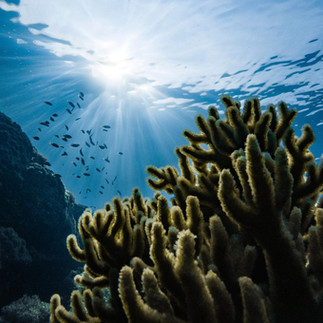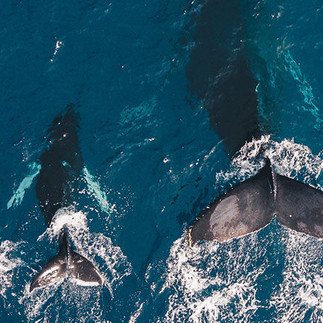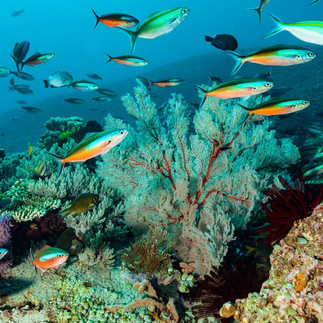Why Now is the Time to get into Marine Biology
- louisahoy
- Jul 13, 2021
- 3 min read
What is marine biology?
Marine biology is the biological study of marine organisms and ecosystems. It is the zoology of the seas and oceans with an emphasis on the global physical and chemical changes such as nutrient circulation and currents which enable ocean life. Reading marine biology emphasises the impact of climate change on the marine environment and how conservation and sustainable lifestyles can mitigate these effects. Now more than ever, marine biology is a critical line of study for tackling climate change.
Climate change can only be solved by understanding what causes it and how it can be controlled. Marine biology allows for greater knowledge of the unique organisms and habitats that lie beneath the surface; knowledge that can aid the fight against climate change, but also specialised medicine developments or the discovery of a long-awaited cure to a terrible disease. For example, Prialt is a drug that has been derived from Pacific cone snail venom and is used to treat chronic pain (Krajick, 2004). Cone snail venom is so strong that it can paralyse the human nervous system, therefore it was conceivable that small quantities could help restrict pain when diagnosed correctly, hence extensive research led to the production of Prialt.
How can you make a difference?
Pessimists take on the mindset that one person isn’t enough to make a difference. To those with such a negative mindset, I say that one person may seem insignificant, but when combined with hundreds and thousands of others, they can make a big impact. One’s voice is magnified when others are shouting the same message. Picture a football game, where the home team is screaming more as a player approaches the goal. You may not be able to hear one individual’s voice, but you hear the crowd nonetheless. The same can be said for climate action and awareness, where the more people there are talking about it, the greater the spread of ideas. Therefore, choosing to study marine biology or doing research into climate change is nothing but beneficial for our planet and the future of the seas themselves. (Is marine biology not a subject where one individual can make a big difference? E.g. vaccine discovery etc)
In an industry such as this, watch those that have gone before you and carefully observe their paths and footsteps, but always strive to create your own impression on the world and make a personal impact.
In terms of what you can do with a degree in marine biology, the options are virtually endless. You could end up with a career in conservation, where you primarily focus on protecting marine environments and ensuring, not only their presence but their success for years to come. On the other hand, research is vital in this field and must continue to develop and improve, since, as our knowledge expands, our capabilities of dealing with the natural world evolve and adapt, especially in responding to climate change issues such as ocean acidification and coral bleaching (consider reversing; research is a subset of these fields, these fields aren’t a subset of research). You could also move further away from the science itself, and take marine biology into a company, such as charity work, or even innovation into sustainable and eco-friendly products as every business in western hemisphere replaces their service offering with recyclables. There are so many more ways in which a degree in marine biology is useful, and these are just some of the possible paths you could go down.
It is important to note that degrees are not necessarily the right path for everyone and are not essential in every job. Don’t feel like you can’t integrate yourself into this industry without a degree; a clear and undeniable passion for the environment and marine world is capable of taking you a long way.
How much further is there to go?
Marine biology as a degree is becoming more popular by the year, and this couldn’t be more promising when looking at the future of our planet, seas, and ecosystems. The more people that are involved in and care about the oceans, the greater the awareness will be, and the greater impact conservation and sustainability strategies will have.
Nonetheless, we must continue to strengthen our efforts of raising awareness and starting conversations about what lies beneath our oceans. Climate change isn’t stopping, and neither is coral bleaching, plastic pollution, or ocean acidification. It is our responsibility, as those most invested in marine biology and the environment itself, to contribute ceaselessly until extensive and sustainable change is seen.
References
Krajick, Kevin (2004). Medicine from the Sea [Online]. Available at: https://www.smithsonianmag.com/science-nature/medicine-from-the-sea-99586066/ (Accessed: 13 July 2021).






















Comments